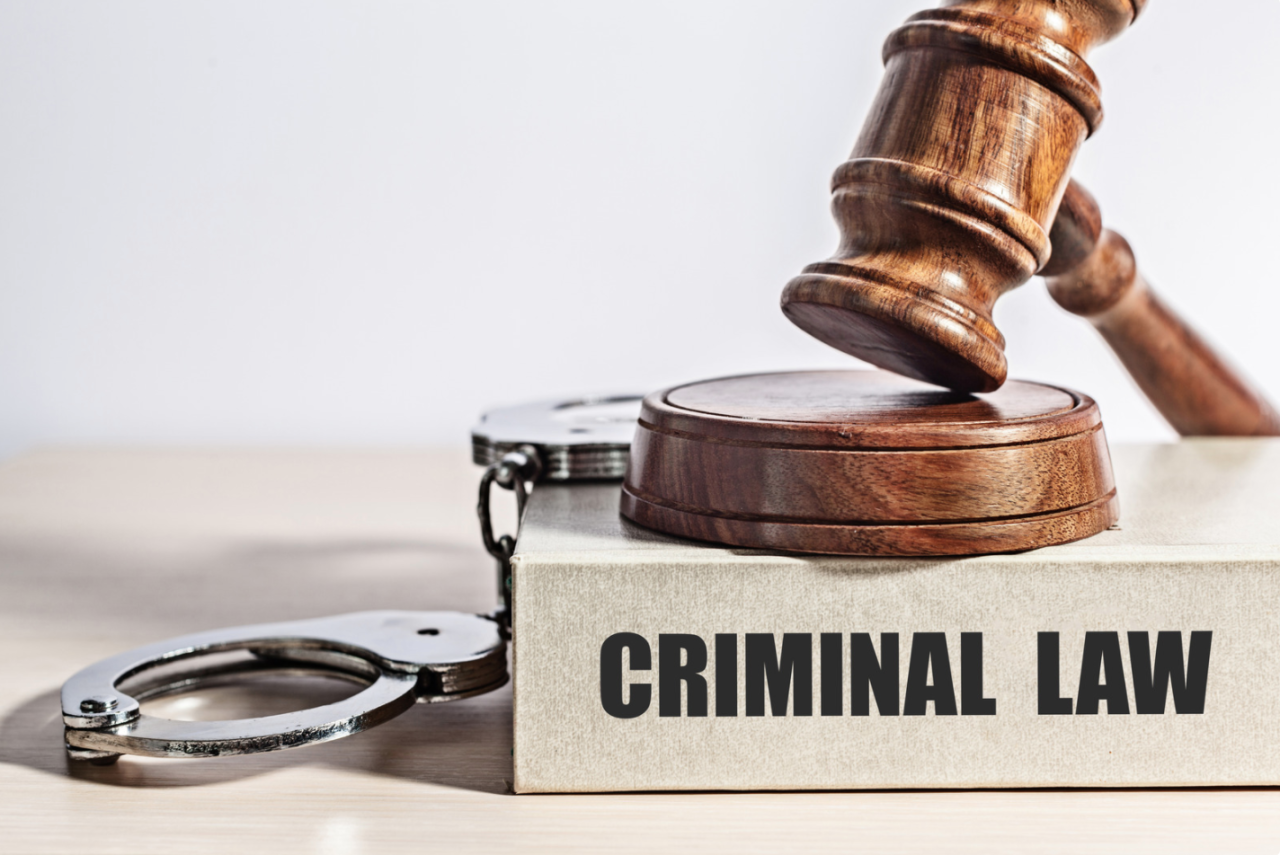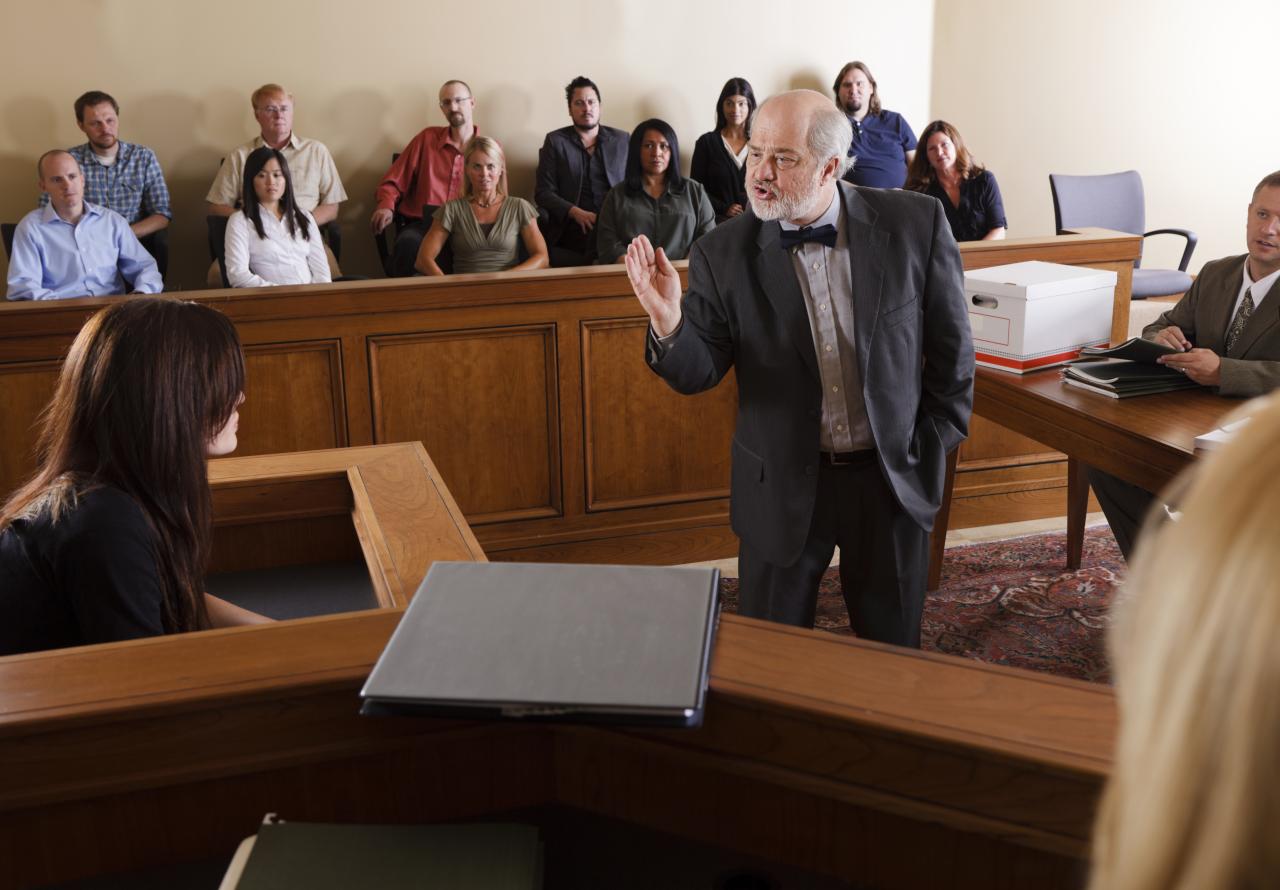
Understanding the Legal Framework
Criminal attorneys play a crucial role in the legal system, ensuring that individuals accused of crimes receive fair trials and their rights are protected. They are responsible for advising clients, representing them in court, and negotiating plea agreements.
Ethical and professional responsibilities guide criminal attorneys’ conduct. They must maintain client confidentiality, avoid conflicts of interest, and zealously advocate for their clients within the bounds of the law. Attorneys who violate these ethical obligations may face disciplinary action or even disbarment.
Common legal procedures involving criminal attorneys include:
- Arraignment: The formal reading of charges against a defendant, where they enter a plea.
- Discovery: The exchange of information between the prosecution and defense, including witness lists and evidence.
- Plea negotiations: Discussions between the prosecution and defense to reach an agreement on a guilty plea in exchange for a reduced sentence.
- Trial: The formal presentation of evidence and arguments before a judge or jury to determine guilt or innocence.
- Sentencing: The imposition of a punishment by the court if the defendant is found guilty.
Criminal Defense Strategies

Criminal defense attorneys employ various strategies to protect their clients’ rights and interests. These strategies include:
Evidence Gathering and Analysis
Gathering and analyzing evidence is crucial in building a strong defense. Attorneys may conduct thorough investigations, interview witnesses, and examine physical evidence to establish the facts of the case and identify potential weaknesses in the prosecution’s case.
Plea Bargaining
Plea bargaining involves negotiating with the prosecution to reach an agreement on the charges and potential penalties. This can be a beneficial strategy when the evidence against the client is strong or the charges are severe. However, attorneys must carefully consider the potential consequences of plea agreements and ensure that their clients’ rights are protected.
Trial Preparation
Preparing for trial requires extensive work, including selecting a jury, preparing witnesses, and developing a comprehensive trial strategy. Attorneys must be well-versed in the applicable laws and procedures and anticipate the prosecution’s arguments to effectively represent their clients.
Types of Criminal Cases

The realm of criminal law encompasses a vast array of offenses, ranging from minor misdemeanors to grave felonies. Each type of criminal case presents its own unique set of challenges and complexities, requiring specialized knowledge and strategic navigation.
Criminal offenses are typically classified based on their severity and the potential harm they pose to society. Misdemeanors are generally considered less serious offenses, such as petty theft or disorderly conduct, and typically carry lesser penalties, such as fines or short jail sentences.
Felonies
Felonies, on the other hand, are more serious offenses, such as murder, robbery, or drug trafficking, and can result in significant prison sentences or even the death penalty in some cases.
The specific challenges and complexities associated with different types of criminal cases vary depending on the nature of the offense, the evidence available, and the applicable laws and legal defenses. For example, cases involving violent crimes often require careful handling of sensitive evidence and witness testimony, while white-collar crimes may involve complex financial and legal issues.
Legal Penalties and Consequences
The legal penalties and consequences for criminal offenses also vary widely depending on the severity of the crime and the jurisdiction in which it occurs. Some common penalties include fines, probation, community service, and imprisonment. In addition, certain offenses may carry additional consequences, such as loss of driving privileges or professional licenses.
Understanding the specific legal penalties and consequences associated with different types of criminal offenses is crucial for both the accused and their legal counsel. This knowledge enables informed decision-making and ensures that appropriate legal strategies are employed to protect the rights and interests of all parties involved.
Client Representation
In criminal cases, the attorney-client relationship is crucial for effective legal representation. It is a professional partnership built on trust, confidentiality, and open communication.
Establishing this relationship begins with a thorough consultation, where the attorney assesses the case, explains potential legal strategies, and discusses fees and expectations. Once both parties agree to work together, a formal retainer agreement is typically signed, outlining the scope of representation and responsibilities.
Attorney-Client Confidentiality and Privilege
Confidentiality and privilege are fundamental principles that protect attorney-client communications. Anything disclosed by the client to their attorney during the course of representation is generally considered privileged and cannot be disclosed without the client’s consent.
This privilege ensures that clients can freely and honestly discuss their case with their attorney without fear of their information being used against them. It fosters trust and allows for candid discussions necessary for effective legal representation.
Selecting and Working Effectively with a Criminal Attorney
Selecting the right criminal attorney is essential. Consider factors such as experience, reputation, and chemistry. Schedule consultations with multiple attorneys to find one who understands your case and with whom you feel comfortable.
To work effectively with your attorney, provide complete and accurate information about your case, be responsive to requests for documents or information, and follow their legal advice. Open communication and mutual respect are key to a successful attorney-client relationship.
Sentencing and Appeals

Sentencing and appeals are critical stages in the criminal justice process. Sentencing determines the punishment imposed on a convicted defendant, while appeals provide an opportunity to challenge the conviction or sentence. Understanding these processes is essential for criminal attorneys and defendants alike.
Factors Considered During Sentencing
Sentencing in criminal cases is a complex process that considers various factors, including:
- Nature and severity of the crime
- Defendant’s criminal history
- Defendant’s age and mental health
- Mitigating and aggravating circumstances
- Sentencing guidelines and statutory mandates
Process of Appealing a Criminal Conviction
Appealing a criminal conviction involves a multi-step process:
- Filing a notice of appeal
- Preparing an appellate brief outlining the grounds for appeal
- Oral arguments before an appellate court
- Issuance of a written opinion by the appellate court
Role of Criminal Attorneys in Post-Conviction Proceedings
Criminal attorneys play a vital role in post-conviction proceedings, including:
- Advising clients on sentencing options and appeal rights
- Preparing and filing appeals
- Negotiating plea agreements or reduced sentences
- Advocating for clients’ rights throughout the appeals process





